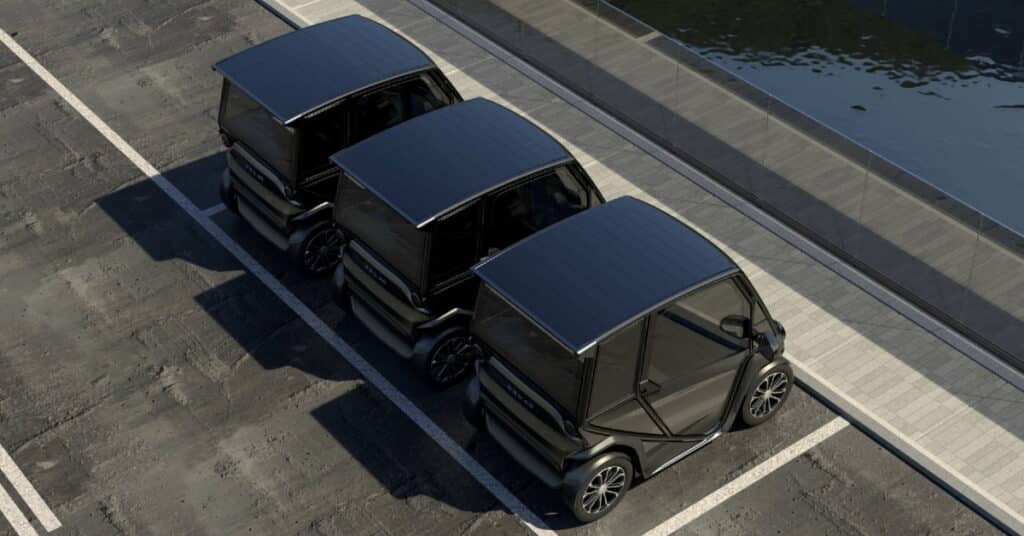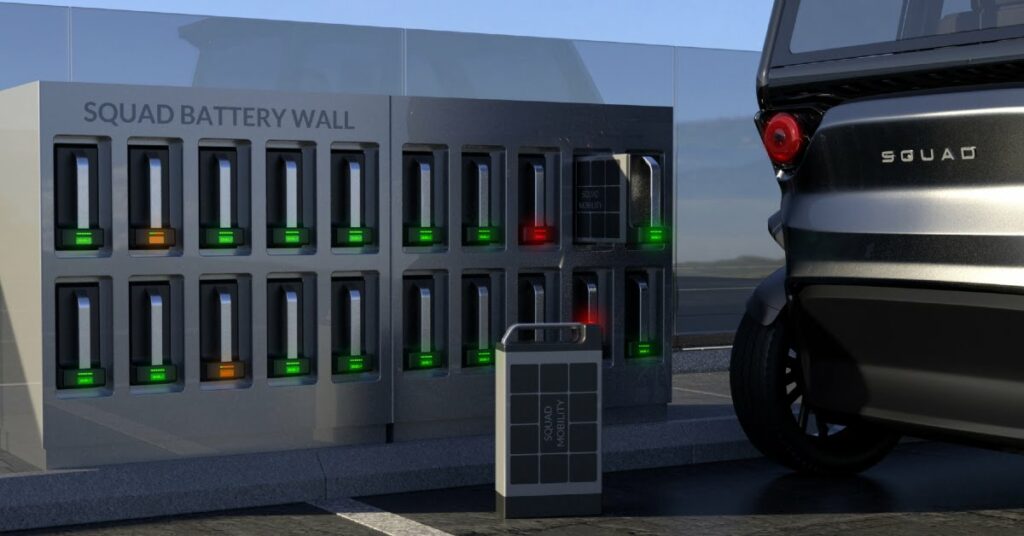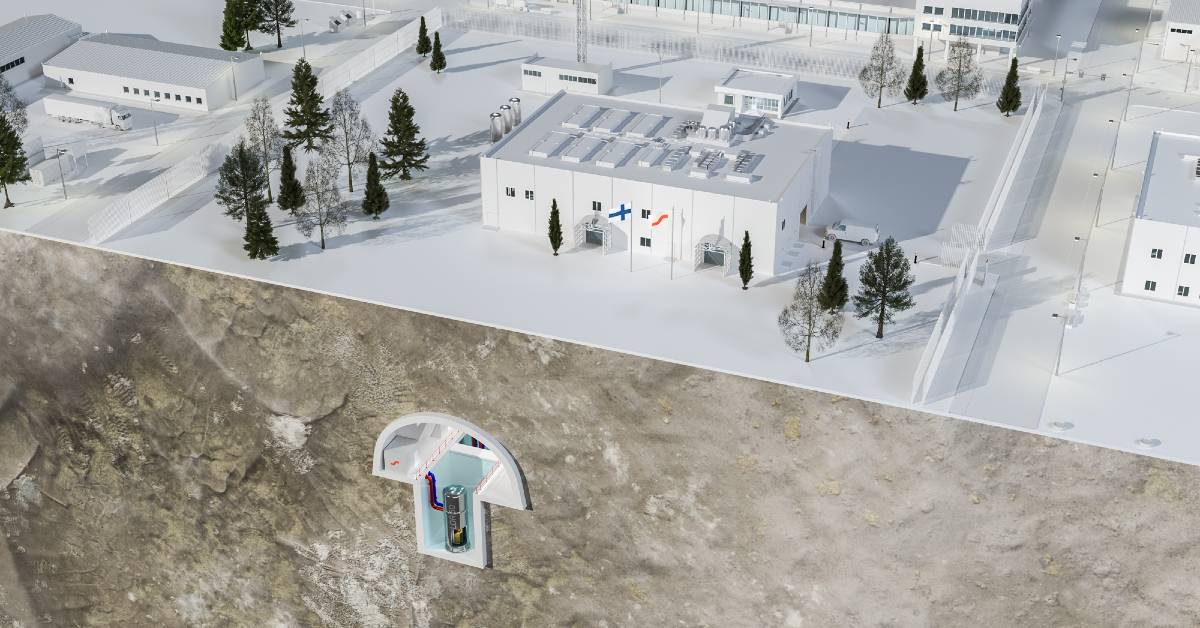Dutch-based Squad Mobility (SQUAD) is focused on designing & developing solar-electric quadricycles for emission-free urban mobility. Today, the company has unveiled the pre-prototype design of SQUAD, which the company claims is the world’s first solar city car, optimised for shared mobility.
Last March, the company had signed an investment agreement with Bloomit Ventures. Bloomit is an active investor in, and accelerator of Light Electric Vehicles (LEV), run by the founders of Babboe cargo bikes.
Affordable solar city car for daily mobility
SQUAD claims to offer an affordable and sustainable solution for daily mobility needs. For instance: commuting to work, bringing the kids to school, going to the sports club, social visits, shopping, and doing groceries. All these, without the cost and hassle of parking, traffic, and congestion charge.

In 2019, Squad Mobility aimed to provide “a solar city car for everyone”. The company wanted to simplify mobility for everyone with its Solar City Car which it claims will be available in 2022.
About Squad Mobility
The company was founded in 2019 by Robert Hoevers and Chris Klok – two ex-Lightyear employees who aim to offer an affordable Solar Car for a large group of consumers. Together, they have more than 40 years of experience in mobility, varying from scooters to motorcycles, FIA Formula E, Renault, Piaggio, Solar Cars and even flying cars.
The Squad is a 45 km/h, 2-person Solar Car for daily mobility. The Squad (Solar Quad) is already available for pre-order in the EU. Retail price starts at around €5750 (ex. VAT). The Squad can charge up to 20 km per day in the EU. The average City Car user in the EU drives around 12 km per day. The extra range can be charged via regular power sockets or indoors with portable and swappable batteries.
The Squad will be approved in the L6e category, light 4-wheeled vehicles. A more powerful 70 km/h L7 category version will also be offered in the coming future.
The Solar Car offers space for two passengers sitting side by side, and a storage compartment in the back. The company claims that the car has a full roll cage with seat belts, automotive style crash structures front and rear, and a 4-wheel stability that offers safety for all passengers.
There are interesting cost and tax benefits in this segment. For example, there is no congestion charge, no road tax, no parking fees, low insurance fees, and no car driving license needed in most markets.
By next year, the company will also offer a subscription and/or lease models for a price of about €100 per month. Production will start in the last quarter of 2022 in the EU.
What makes the SQUAD easy to share?
The Squad is specifically developed for sharing platforms. Shared mobility users need easy access, intuitive operation and a safe, stable ride. Cities are looking for the smallest space footprint and zero emissions. Sharing platform operators appreciate a low Capex and Opex, the automatic solar charging, swappable batteries, and high durability, low maintenance, of the Squad.
Robert Hoevers, CEO of Squad Mobility says, “Keeping a free-floating fleet charged is one of the main operational costs of an EV sharing fleet operator. The automatic, wireless and free solar charging is of course a wonderful solution. Also, cities love solar charging, as this is a sustainable energy source. It decreases the load on the local charging infrastructure and energy demand. Cities are looking for zero-emission mobility solutions with a small space footprint. We have achieved both. A per capita energy consumption lower than public transport and a space footprint comparable to a bicycle. And all this, while offering the flexibility of personal transport and the comfort of a car.”
Swappable batteries and Battery Fleet Management System
The two-seater vehicle is easy to access and operate and charges automatically in sunlight as well as includes swappable batteries. Battery State of Charge and State of Health, as well as many other parameters like maximum discharge rate, cell temperature and misuse indicators like water damage or excessive G-forces are monitored and are available to the operator.

Squad will also offer a smart charging & swapping station for reserve batteries to fleet operators. Other charging options include charging from a regular power socket and DC charging directly from locally installed solar panels.
“Information is key”
The company will provide its users with the vehicle’s update, what the state of charge is, additional information on the state of operation, tire pressures, cleanliness, damage, etc. This information will also help operators to plan maintenance as efficiently as possible – customers can also ask the operator for help when necessary.
Besides, Squad Mobility will also equip the Squads with cameras to check the state of the vehicles and their position in the public space, the usage by the customer, and the cause of accidents. The cameras will also offer the possibility for remote control of the vehicle by the operator, in case the vehicle is improperly parked or is blocking an exit.
Speaking about this, Chris Klok (Chief of Design), says, “Remote control means we take extra capabilities into account in the design, such as the application of remote actuation of the steering and the possibility to relay data from the CAN bus to the operator and back in a secure way. In the longer term, we envision the use of autonomous technology to control the fleet in the city, for example to move vehicles back to places with high demand or more sunshine for charging.”
Moves to Breda
Earlier this year, the company announced that it has moved to its new office in Breda in the south of the Netherlands. “Although working from home has been the norm last year, the steady arrival of tools, components and materials for assembly of the first Squad Solar Cars forced us to look for an office with a workshop to build and test the first series of prototypes,” say Hoevers and Klok.










01
From telecom veteran to Dutch Startup Visa success: The Jignesh Dave story